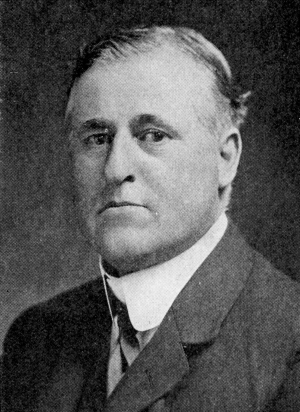Sir William Watson 1858-1935

William Watson was born in Burley, West Yorkshire, the son of a canvas merchant. He moved around several times in his childhood on account of his father’s business, eventually growing up in the Liverpool area. In 1880 he published his first poem The Prince’s Quest but it was his poem Wordsworth’s Grave in 1891 which established his reputation, cemented by his eulogy on Tennyson, Lacrimae Musarum (tears of the Muses). In the mid-1890s he made frequent contributions to the quarterly literary publication The Yellow Book.
In 1892 he suffered a breakdown which may have cost him the chance of the poet laureateship as he was passed over for the position after Wordsworth’s death in favour of Alfred Austin. He was however awarded a Civil List pension of £200 per annum as a kind of consolation prize. Over the next thirty years he published numerous volumes of poetry including The Purple East, a series of sonnets attacking England’s desertion of Armenia in their war with Turkey and a number of anti-Boer War poems. He was in no way unpatriotic however and in 1901 wrote a coronation ode for the accession of King Edward VII.
He married Maureen Pring, some twenty years his junior, at the age of 50 in 1909 and they had two daughters. After Austin’s death in 1913 he was again considered for the laureateship but was once more passed over in favour of Robert Bridges. Some satirical verses he had written earlier against the prime minister’s wife, Margot Asquith, may not have helped his cause. He was, however, knighted in 1917.
Watson’s poetry was largely forgotten after World War I as tastes moved on. He was a sincere and traditionalist poet who wrote with restraint, precision and passion. He was never afraid of being controversial in expressing his political beliefs which may have done him no favours in official circles but he was highly regarded by his poet contemporaries, Kipling saying of him that he never wrote a bad line. He spent his last few years living in Bath in straitened circumstances, finally moving to East Sussex, where he died, aged 77.
Works include
Books you might enjoy
Buy books related to William Watson at amazon.co.uk
Support this site
Please help us to improve this site by supporting the site on Patreon. As a supporter you will get access to the English Verse Discord server, where you can meet other poetry enthusiasts and help shape the development of the site.